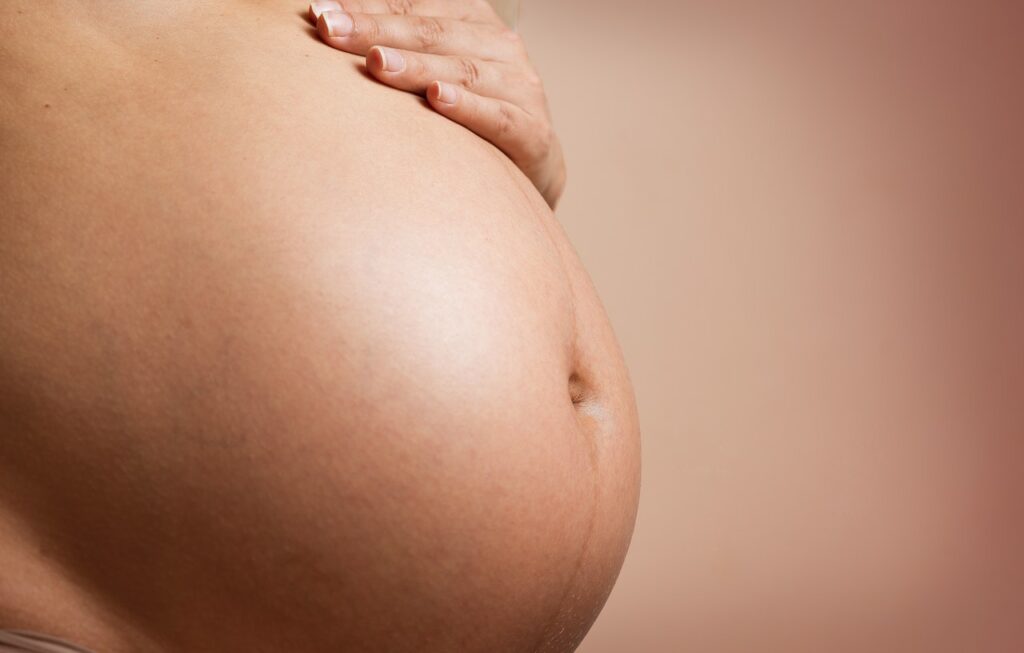Pregnancy is a transformative and awe-inspiring journey that brings joy, anticipation, and a sense of wonder. As expectant mothers embark on this incredible chapter of their lives, they are often bombarded with a plethora of information, advice, and, unfortunately, myths surrounding pregnancy. These myths can create confusion, anxiety, and unnecessary concerns. That’s why it’s crucial to debunk these pregnancy myths and equip women with accurate knowledge to make informed decisions about their health and the well-being of their babies.
This article will delve into common pregnancy myths and separate facts from fiction. We will explore eating habits, exercise, morning sickness, heartburn, skincare, and more. By addressing these myths head-on, we aim to empower expectant mothers with reliable information to help them navigate their pregnancy journey confidently and safely.
1. Eating for Two
“Eating for two” is often associated with pregnancy, suggesting that expectant mothers should consume double the amount of food. However, this myth is far from the truth. While nourishing your body during pregnancy is essential, overeating can lead to excessive weight gain and complications.
Prenatal nutrition is vital in supporting the mother’s and growing baby’s health and development. Rather than focusing on quantity, it is crucial to prioritize the quality of the food consumed. A well-balanced diet that includes a variety of fruits, vegetables, whole grains, lean proteins, and dairy products provides the necessary nutrients for a healthy pregnancy.
At Motherhood Center in Houston, we understand the significance of proper prenatal nutrition. Our comprehensive prenatal nutrition classes are designed to educate and guide expectant mothers in making informed choices about their diet. Experienced nutrition experts lead these classes, covering essential nutrients, meal planning, managing cravings, and maintaining a healthy weight during pregnancy.
By attending our prenatal nutrition classes, you can gain valuable insights into optimizing your nutritional intake for your and your baby’s benefit. Our expert instructors will provide practical tips, recipes, and personalized guidance to help you make the best choices for a healthy and fulfilling pregnancy journey.
Remember, it’s not about eating for two in quantity but rather nourishing yourself and your baby with nutrient-dense foods that support optimal growth and development. So, join us at Motherhood Center and empower yourself with the knowledge and tools to make informed choices about your prenatal nutrition.
2. Avoiding exercise
Avoiding exercise is another myth that has been perpetuated over the years. Regular physical activity during pregnancy has numerous benefits for both the mother and the baby. Exercise helps maintain a healthy weight, reduce pregnancy discomfort, improve mood, and prepare the body for labor. Safe exercise options for pregnancy include walking, swimming, prenatal yoga, and low-impact aerobics.
At Motherhood Center, we offer specialized Prenatal Yoga & Pregnancy Fitness Classes led by experienced instructors who understand the unique needs of expectant mothers. Prenatal Yoga focuses on gentle stretching, relaxation techniques, and breathing exercises to alleviate discomforts and prepare for childbirth. Our Pregnancy Fitness Classes incorporate safe and effective workouts tailored to pregnancy. These classes provide an opportunity to connect with other expectant mothers and build a supportive community.
Always consult your healthcare provider before starting any exercise program during pregnancy. Join us at Motherhood Center to discover the joy of staying active and maintaining a healthy lifestyle throughout pregnancy.
3. Morning sickness only happens in the morning
Morning sickness is common during pregnancy, but its name can be misleading. Contrary to popular belief, morning sickness is not limited to the morning hours. Many expectant mothers experience nausea and vomiting at different times of the day.
While the exact cause of morning sickness is not fully understood, hormonal changes and sensitivity to certain smells and tastes are believed to play a role. The severity and timing of morning sickness can vary among women but usually improve as the pregnancy progresses.
To manage morning sickness, try eating small, frequent meals, avoiding triggers, staying hydrated, getting enough rest, and practicing relaxation techniques.
Remember, morning sickness can occur at any time of the day, and its intensity varies for each individual. Don’t hesitate to seek support and explore strategies that work best for you. Together, we can navigate morning sickness and ensure a smoother pregnancy journey.
4. Heartburn predicts the baby’s hair growth
A popular but baseless myth suggests that experiencing heartburn during pregnancy indicates the baby has a full head of hair. However, there is no scientific evidence to support this claim.
Heartburn during pregnancy occurs due to hormonal changes and the pressure of the growing uterus on the stomach. It causes discomfort as stomach acid refluxes into the esophagus. However, heartburn is unrelated to how much hair a baby will have at birth.
The baby’s hair growth is determined by genetics and individual characteristics, such as family history and ethnic background. Factors like heartburn during pregnancy do not influence the baby’s hair development.
To manage heartburn, make lifestyle adjustments and seek guidance from your healthcare provider. Simple measures such as avoiding trigger foods, eating smaller meals, staying upright after eating, and using elevated pillows while sleeping can provide relief.
Remember, the presence or absence of heartburn during pregnancy does not predict your baby’s hair growth. Embrace the joy of discovering your baby’s unique features when they arrive, regardless of their hair appearance.
5. Cocoa butter prevents stretch marks
A common myth suggests that cocoa butter can prevent stretch marks during pregnancy. However, there is no scientific evidence to support this claim.
Stretch marks occur when the skin stretches rapidly during pregnancy, and their severity and appearance can vary. While cocoa butter is a popular moisturizer known for its hydrating properties, its effectiveness in preventing stretch marks is not proven.
To care for your skin during pregnancy, it’s essential to keep it hydrated and moisturized. While using a suitable moisturizer can alleviate dryness and itchiness, it cannot guarantee the prevention of stretch marks.
Instead of relying solely on cocoa butter, focus on maintaining a healthy lifestyle, staying hydrated, and following a balanced diet. Consulting with your healthcare provider for personalized skincare recommendations can also be helpful.
Remember, stretch marks are a natural part of the journey into motherhood. Embrace the changes in your body and seek support and guidance as needed.
6. You can determine the baby’s gender through the shape of the belly
A common myth suggests that the shape of the pregnant belly can reveal the baby’s gender. However, there is no scientific evidence to support this claim. The belly shape during pregnancy is influenced by factors such as the baby’s position, the mother’s body shape, and muscle tone. It has no connection to the baby’s gender.
Accurate determination of the baby’s gender is typically done through medical methods like ultrasound or genetic testing. These procedures provide reliable information. It’s crucial to approach belly shape myths cautiously and consult your healthcare provider for accurate insights into your baby’s gender. Remember, the shape of the belly does not indicate the baby’s gender. Trust the expertise of medical professionals for accurate information during your pregnancy.
7. Avoiding seafood entirely
A common myth advises pregnant women to avoid seafood altogether. However, while caution is necessary due to mercury content, seafood provides vital nutrients for both mother and baby.
Fish and shellfish are rich in omega-3 fatty acids, essential for the baby’s brain and eye development. They also offer protein, vitamins, and minerals. Choose seafood wisely during pregnancy.
Certain fish, like sharks and swordfish, have high mercury levels and should be avoided. Instead, choose low-mercury options like salmon, shrimp, trout, and catfish.
Follow local guidelines and cook seafood thoroughly to eliminate bacteria and parasites.
Motherhood Center’s Prenatal Nutrition classes provide valuable guidance on maintaining a healthy diet during pregnancy, including safe seafood choices.
Remember, while caution is necessary, altogether avoiding seafood is unnecessary. Choose wisely to enjoy its benefits while ensuring your and your baby’s well-being.
8. Eating spicy food induces labor
The belief that eating spicy food can induce labor is a popular myth. However, there is limited scientific evidence to support this claim.
Spicy foods contain capsaicin, which can stimulate nerve endings and lead to temporary physical reactions. However, consuming spicy food alone is unlikely to trigger labor contractions.
The onset of labor is a complex process influenced by various factors, and while some anecdotal reports suggest a connection between spicy food consumption and the start of labor, the cause-and-effect relationship is unclear.
If you have concerns about inducing labor or are nearing your due date, it’s best to consult your healthcare provider for personalized guidance. They can provide appropriate recommendations and discuss safe and effective methods for naturally stimulating labor if necessary.
Remember to maintain a well-balanced diet, stay hydrated, and follow your healthcare provider’s advice for a healthy pregnancy and childbirth experience.
9. Drinking coffee leads to birth defects
There is a myth that consuming coffee during pregnancy can cause birth defects. However, the evidence on this topic is not conclusive.
Caffeine in coffee and other beverages can cross the placenta and reach the fetus. High levels of caffeine intake have been associated with an increased risk of miscarriage and preterm birth. However, the research regarding birth defects is inconclusive.
To be cautious, healthcare professionals often recommend limiting caffeine intake during pregnancy. The American College of Obstetricians and Gynecologists suggests consuming no more than 200 milligrams of caffeine daily, roughly equivalent to one 12-ounce cup of coffee.
If you have concerns about caffeine consumption during pregnancy, consult your healthcare provider for personalized guidance. They can provide advice based on your circumstances.
Remember, moderation is key. Be mindful of caffeine intake and make informed choices that align with your healthcare provider’s recommendations. Maintaining a balanced and healthy lifestyle is crucial for your and your baby’s well-being.
10. Pregnancy guarantees glowing skin
A common myth suggests that pregnancy guarantees glowing skin. While hormonal changes during pregnancy can lead to positive skin changes for some women, it is not a guaranteed outcome for everyone.
Hormonal fluctuations during pregnancy can result in various skin changes. Some women may experience a radiant complexion, increased skin hydration, and a natural glow due to increased blood flow and hormone-induced changes in oil production. However, not all women experience these positive skin changes. Hormonal fluctuations can cause acne breakouts, increased skin sensitivity, or changes in pigmentation.
Individual experiences can vary widely, influenced by genetics, skincare routine, diet, and lifestyle choices. To maintain healthy skin during pregnancy, it’s essential to follow a gentle skincare routine, stay hydrated, protect your skin from excessive sun exposure, and consult with a dermatologist for specific concerns.
11. Sleeping on the back is harmful to the baby
A myth suggests that sleeping on the back can harm the baby during pregnancy. While certain sleep positions are recommended for comfort, the immediate risk of sleeping on the back is inaccurate.
As the uterus expands, lying flat on the back can exert pressure on major blood vessels, potentially affecting blood flow and the baby’s oxygen supply. However, the impact varies among women; not all experience adverse effects.
To promote better circulation and comfort, it’s generally advised for pregnant women to sleep on their side, especially the left side. This position enhances blood flow to the placenta, optimizing the baby’s well-being. Using pillows for support can improve comfort and maintain the side sleeping position.
While sleeping on the back may not directly harm the baby, a side sleeping position is generally recommended for better circulation and comfort during pregnancy. Consult with your healthcare provider for personalized guidance based on your needs.
12. All pregnant women experience a high sex drive
A myth suggests that all pregnant women experience a high sex drive. However, the reality is that sexual desire during pregnancy varies for each woman.
While some women may experience increased sexual desire due to hormonal changes, physical discomfort and emotional fluctuations can also influence libido. It’s essential to recognize that every woman’s experience is unique.
Pregnancy brings about different emotions and physical changes, which can affect sexual desire differently for each individual. Some women may have an increased sex drive, while others may experience a decrease or fluctuation in appetite. Open communication with your partner about your needs and concerns is crucial to maintaining a healthy and satisfying sexual relationship during this time.
If you have specific concerns about your sexual health during pregnancy, it’s recommended to consult with your healthcare provider for personalized guidance. Remember, there is no universal experience regarding sex drive during pregnancy, and it’s vital to prioritize open communication and understanding with your partner as you navigate this phase together.
13. Hair and nails grow faster during pregnancy
During pregnancy, there is a common belief that hair and nails grow faster. While hormonal changes can influence the growth cycle of hair and nails, not all women experience significant changes.
Increased estrogen levels during pregnancy can prolong the growth phase of hair follicles and enhance nail health, leading to the perception of faster growth. However, individual factors such as genetics, overall health, and nutrition also contribute to the appearance and development of hair and nails.
It’s important to note that these changes are temporary and not universal. Taking care of your overall health through a balanced diet and proper hydration can support the health and appearance of your hair and nails during pregnancy.
If you have concerns about the changes in your hair or nails, consulting with your healthcare provider can provide personalized advice and recommendations.
Conclusion
Debunking pregnancy myths is crucial to ensure expectant mothers have accurate information and can make informed decisions about their health and well-being. By dispelling these misconceptions, we empower women to navigate their pregnancy journey confidently and clearly.
Pregnancy is a unique experience for every woman, and it’s essential to approach it with realistic expectations. The myths we’ve discussed, from eating for two to determining the baby’s gender through the shape of the belly, shed light on common misconceptions that can misguide expectant mothers.
At Motherhood Center in Houston, we provide comprehensive support and resources for expectant mothers. Our prenatal nutrition classes offer valuable guidance on maintaining a healthy diet and addressing common nutritional concerns during pregnancy. Additionally, our Prenatal Yoga & Pregnancy Fitness Classes provide a safe and nurturing environment for expectant mothers to engage in physical activity that promotes strength, flexibility, and overall well-being.
We encourage you to use these resources and contact Motherhood Center in Houston. Our knowledgeable staff is ready to assist you on your pregnancy journey, answering questions and providing personalized guidance to ensure a healthy and fulfilling experience.
Remember, pregnancy is a remarkable and transformative journey. You can embrace this journey with confidence, knowledge, and the support you need by seeking reliable information, consulting with healthcare providers, and connecting with supportive communities like Motherhood Center. Contact Motherhood Center today to embark on a fulfilling and well-supported pregnancy experience.
FAQs
Are pregnancy cravings a myth?
Pregnancy cravings are a common phenomenon experienced by many expectant mothers. They can vary from person to person and are believed to be influenced by hormonal changes and nutritional needs.
Is it safe to dye my hair during pregnancy?
While there is no conclusive evidence suggesting that hair dye poses a significant risk during pregnancy, it is recommended to exercise caution. Opting for ammonia-free and low-chemical hair dyes and conducting a patch test can help minimize potential risks.
Can I still travel during pregnancy?
Traveling during pregnancy is generally considered safe for low-risk pregnancies. However, it is advisable to consult your healthcare provider before making any travel plans, especially during the later stages of pregnancy.
Can stress harm the baby during pregnancy?
Prolonged and excessive pregnancy stress can affect both the mother and the baby. Managing stress through relaxation techniques, seeking support, and maintaining a healthy lifestyle is essential.
When should I start shopping for baby essentials?
It is recommended to start shopping for baby essentials around the second trimester when you better understand your needs and preferences. However, every pregnancy is different, and it’s essential to listen to your intuition and plan according to your circumstances.







